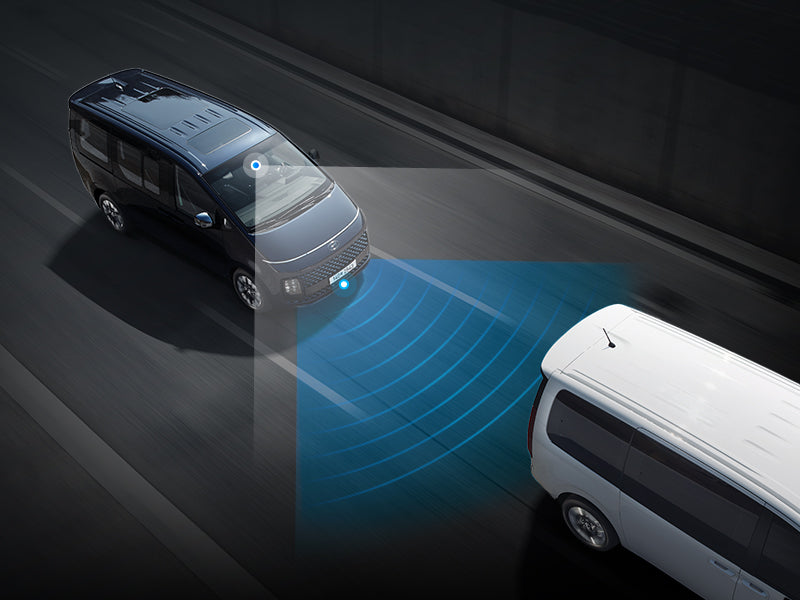Modern cars are equipped with advanced safety technologies designed to prevent accidents and protect lives. One such feature is Forward Collision Avoidance Assist (FCA), a groundbreaking driver-assistance system that enhances road safety. This blog explores the standard FCA system, its advanced versions, how it works, its limitations, and its benefits. We'll also explain why FCA-equipped vehicles may qualify for a 10% insurance discount with ICBC.
What is Forward Collision Avoidance Assist?
Forward Collision Avoidance Assist (FCA) is a driver-assistance system that helps prevent or mitigate collisions with vehicles, pedestrians, cyclists, or other obstacles in the vehicle's path. Using a combination of sensors, cameras, and radar, FCA monitors the road ahead and takes action when it detects an imminent collision.
How It Works
- Detection: FCA uses forward-facing cameras and radar systems to continuously scan the road ahead for vehicles, pedestrians, or objects.
- Warning: If the system detects a potential collision, it alerts the driver with visual and auditory warnings.
- Assistance: If the driver does not react in time, FCA may automatically apply the brakes to avoid the collision or reduce its severity.
Advanced Versions of FCA
Advanced FCA systems go beyond basic functionality by incorporating additional features:
- Extended Detection: Advanced FCA can detect pedestrians, cyclists, and even large animals like deer, whereas standard FCA might only focus on vehicles.
- Intersection Assist: Helps prevent collisions at intersections by monitoring oncoming traffic when making left or right turns.
- Junction Assist: Detects cross-traffic and stops the vehicle if necessary.
- Reverse FCA: Some systems also offer rear collision avoidance, enhancing safety when reversing.
- Enhanced Speed Range: Advanced FCA can operate at higher speeds, making it effective on highways and in city traffic.
Situations Where FCA May Not Work Properly
While FCA is highly effective, there are scenarios where it might not perform optimally:
- Low Visibility: Heavy rain, fog, or snow can obstruct the sensors and cameras.
- Obstructed Sensors: Dirt, ice, or debris covering the camera or radar can impair functionality.
- Complex Scenarios: FCA might struggle in complex environments with multiple moving objects, such as busy intersections.
- Sudden Movements: Pedestrians or vehicles that appear suddenly may not be detected in time.
- High-Speed Collisions: The system may not be able to avoid collisions entirely at very high speeds, although it can reduce their severity.
Benefits of FCA
- Accident Prevention: FCA significantly reduces the risk of front-end collisions, especially in stop-and-go traffic.
- Reduced Injury Severity: In cases where a collision is unavoidable, FCA minimizes the impact by reducing speed.
- Insurance Discounts: In British Columbia, ICBC offers a 10% discount on insurance premiums for vehicles equipped with FCA. The reason for this discount is that FCA-equipped vehicles are statistically less likely to be involved in accidents, reducing the insurer's risk.
Why Does ICBC Offer a 10% Discount?
ICBC, British Columbia's primary auto insurance provider, recognizes the effectiveness of FCA in reducing collision rates. By encouraging drivers to adopt this technology, ICBC reduces overall claims costs and improves road safety. The 10% discount is part of their incentive program to promote advanced driver-assistance systems (ADAS) and safer driving.
Conclusion
Forward Collision Avoidance Assist is a revolutionary feature that enhances safety on the road. Whether in its standard or advanced form, FCA helps prevent collisions, saves lives, and offers financial benefits such as insurance discounts. However, understanding its limitations is essential to ensure optimal use. If you're considering a vehicle with FCA, you're investing in both safety and savings—an upgrade that truly pays off.
For more details on ICBC's insurance discounts or to explore FCA-equipped vehicles, contact Lane11 Motors. Drive safer, smarter, and with peace of mind.

